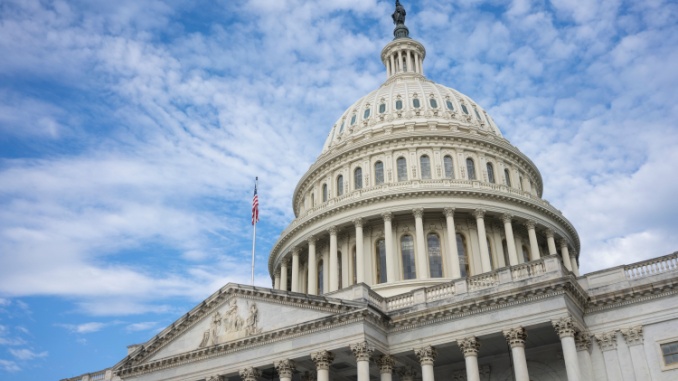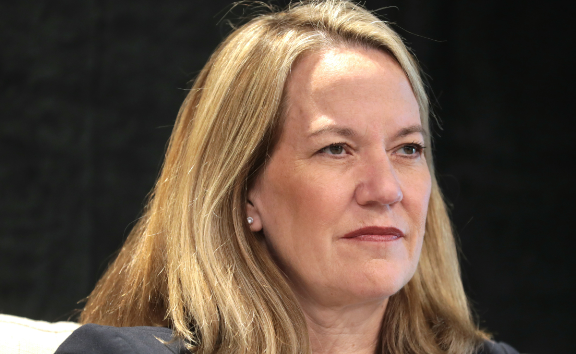
by Jonathan Eberle | Oct 26, 2025 | News
By Jonathan Eberle |
Republicans have expanded their voter registration advantage over Democrats in Arizona to 333,255 registered voters, according to the latest October 2025 report released by the Arizona Secretary of State’s Office.
The newest data shows Republicans now total 1,603,141 registered voters (35.63%), compared to 1,269,886 Democrats (28.23%). Another 1,625,968 voters are registered as “Other,” which includes independents and minor parties such as Libertarians (32,026), No Labels (42,277), and Greens (5,212). Arizona’s overall active voter registration stands at 4,498,995.
Since July, Republicans have added 5,436 new voters, while Democrats lost 421, according to changes noted in the official quarterly report. Historical data compiled by the Secretary of State’s office shows this partisan gap widening steadily in recent years. Republicans led by 295,000 voters in 2024, 166,000 in 2022, and 130,000 in 2020. As of October 2025, that lead now surpasses 333,000 — the largest margin in nearly a decade.
County-level data reveals that Maricopa County, Arizona’s largest, remains a focal point of both parties’ registration efforts. The October report lists 940,727 registered Republicans, compared to 744,804 Democrats, giving the GOP a nearly 196,000-voter advantage in the county. In traditionally conservative counties like Yavapai, Mohave, and Pinal, Republicans maintain commanding leads, while Pima County continues to serve as the Democratic stronghold with 247,221 Democrats to 191,977 Republicans.
The data also shows continued growth in unaffiliated voters, reflecting Arizona’s independent streak. The “Other” category now represents more than one-third of all registered voters (34.37%), and its steady rise across counties — particularly in Maricopa, Pima, and Yuma — highlights how nonpartisan voters could decide close statewide races.
The voter registration update comes less than a year before the 2026 gubernatorial election, in which Republicans aim to unseat Governor Katie Hobbs (D). Political analysts note that while registration advantages can shape turnout dynamics, Arizona’s large share of unaffiliated voters keeps the state in competitive territory.
The report also tracks 409,091 inactive voters, those whose registration may need updating due to address or status changes. Among inactive registrations, Republicans slightly outnumber Democrats — 110,196 to 106,623 — though both parties show similar proportional shares. The next update from the Arizona Secretary of State is expected in early 2026. With voter registration surpassing 4.49 million and growing each quarter, Arizona remains one of the most closely watched swing states in the nation heading into the 2026 election season.
Jonathan Eberle is a reporter for AZ Free News. You can send him news tips using this link.

by Matthew Holloway | Oct 26, 2025 | News
By Matthew Holloway |
Rep. Abe Hamadeh (R-AZ08) condemned top Democrats on Wednesday for casually acknowledging the hardships Americans face during the ongoing government shutdown — one they’ve prolonged while using it for political leverage.
“It’s reprehensible to see top Democrats admit that they’re willing to inflict pain on hardworking Americans to achieve their priorities,” Hamadeh posted on X. “It’s even worse when you consider those priorities are handouts to illegal immigrants & taxpayer-funded fake news.”
Hamadeh’s remarks followed comments from House Minority Whip Katherine Clark (D-MA), who, in a Fox News interview, described the shutdown as a rare opportunity for her party despite its toll on families.
“Shutdowns are terrible. And of course, there will be families that are going to suffer. We take that responsibility very seriously, but it is one of the few leverage times we have,” Clark said.
The full government shutdown stems from Democrats’ refusal to support a clean continuing resolution to maintain current funding levels through November. Instead, they are demanding $1.5 trillion in new spending, including $500 million for public broadcasters like NPR and PBS, and changes to narrow eligibility restrictions for government health care benefits under the “One Big Beautiful Bill,” according to Speaker Mike Johnson’s office. Those restrictions currently limit benefits like Medicare and premium tax credits to U.S. citizens, lawful permanent residents, certain Cuban and Haitian immigrants, and Compact of Free Association migrants. Democrats seek to rescind them, potentially extending free health care to millions of Biden-era parolees from countries like Haiti and Venezuela—2.8 million of whom were admitted despite being “otherwise inadmissible,” per congressional testimony.
As of this report, Senate Democrats have now blocked shutdown-ending votes 11 times in the Senate alone, or 12 overall, including House actions, according to House Speaker Mike Johnson.
“This is now the longest full shutdown in American history. And yet again, Senate Democrats voted for the 11th time — 12 times overall, when you count House and Senate Democrats — to prolong the pain and keep the government closed,” Johnson said in a press conference on Tuesday.
President Donald Trump accused Democrats of “holding the entire federal government hostage” and vowed, “We will not be extorted on this crazy plot of theirs.”
The standoff has furloughed over 800,000 federal workers and contractors, delayed veterans’ benefits, and paused services such as FDA inspections, with ripple effects into the holiday season.
In an interview with KFYI host James T. Harris, Hamadeh stated, “There’s no way we’re going to give an inch on this… There’s nothing that we can negotiate,” when asked how long the Democrats might continue to block funding.
Democrat Senators under Minority Leader Chuck Schumer led the rejection of another clean bill Thursday that would have provided funding to pay the Armed Forces, Capitol Police, Border Patrol, Air Traffic Controllers, Congressional staffers, and “various essential federal workers,” according to Hamadeh. He wrote in a post to X, “It turns out that the ONLY people essential to the Democrats are their militant base and illegal immigrants.”
Later in the day, Hamadeh wrote, “The Democrats won’t support a clear CR, something they’ve done forever… why would you still think they’re going to honor the filibuster next time they’re in power? They’ll gut it so quickly and Republicans will look like fools. They’re unreasonable, manic, and controlled by the leftwing base that’s rewarding them with $$$ political donations. They have zero incentive. The uncomfortable truth is that we are no longer operating under the same rules — I wish we were, but it is not reality. It’s time for the Senate to exercise the nuclear option.”
Democrats previously supported 13 clean continuing resolutions during the Biden administration, a point Republicans have highlighted as inconsistent with their recent actions.
Matthew Holloway is a senior reporter for AZ Free News. Follow him on X for his latest stories, or email tips to Matthew@azfreenews.com.

by AZ Free Enterprise Club | Oct 25, 2025 | Opinion
By the Arizona Free Enterprise Club |
In 2022, the Arizona legislature passed—and then-Governor Ducey signed into law—a landmark election integrity bill: HB 2492. Authored by the Arizona Free Enterprise Club, the law bolsters safeguards to our election process by requiring proof of citizenship to register to vote, ensuring that only U.S. citizens are voting in our elections.
It’s commonsense legislation that is popular with the public and a blueprint for other states looking to adopt nearly identical bills. And why wouldn’t it be? U.S. citizens cannot go into France, Australia, or any other country throughout the world and vote in their elections, so why should citizens from other countries be allowed to vote in our elections?
Yet immediately after HB 2492 was passed, a consortium of liberal organizations and the Biden Justice department sued to stop the law from going into effect. Now, after multiple trips to the Ninth Circuit Court of Appeals, one of which included a bizarre ruling that required an emergency appeal to the U.S. Supreme Court to let Arizona enforce our proof of citizenship requirements for the 2024 election (which we won), the entire law will now be going to the nation’s highest court.
We are confident that the Supreme Court will uphold the law in its entirety, but one issue about the litigation has been simmering beneath the surface: Arizona Attorney General Kris Mayes…
>>> CONTINUE READING >>>

by Staff Reporter | Oct 25, 2025 | Education, News
By Staff Reporter |
An unidentified pink-haired student at the University of Arizona (U of A) gave a death threat to Turning Point USA (TPUSA) students.
The student had a male-presenting voice and wore sunglasses, a long pink dress, light pink jacket, black and white sneakers, and a canvas backpack.
The student’s voice and the type of shoes worn in the video that captured his threat — Puma Zip C men’s sneakers — indicated that the student was a male.
Per a video captured by those present, the student threatened those working the TPUSA table with the same fate that befell the late TPUSA founder and CEO, Charlie Kirk, who was assassinated by a gunshot through the neck last month at Utah Valley University.
Kirk was one month shy of 32 years old at the time of his death. The prominent young conservative activist and pundit left behind a wife, Erika Kirk, and two young children. The individual arrested and charged for Kirk’s assassination, Tyler Robinson, held progressive political beliefs and was in a romantic relationship with a male who identified as a transgender woman.
“Hey Nazis, can you set up somewhere I can avoid you easily?” said the student.
“Yeah, have a great day,” responded one of the TPUSA individuals behind the table.
“Ah, f**k you Nazi. Watch your neck,” responded the student.
The individual who captured the threat on video, TPUSA field representative Caden Hart, reported that, aside from the incident, their tabling efforts yielded over 25 new signups for their chapter.
There is a closed hearing scheduled for Friday at the Utah County Courthouse for Kirk’s alleged killer, and a waiver hearing next week. The proceedings will remain “open to the public,” per the judge in the case. Robinson may receive the death penalty if found guilty.
Some point to this recent incident with the TPUSA table as indicative of the political climate at U of A, and associated it with a reported 19 percent drop in first-year students.
The university associated the decline with a dropping number of out-of-state and international students (23 percent less out-of-state students, nine percent less international students); overall student enrollment fell about four percent.
While hundreds in the U of A community mourned Kirk’s assassination, some have been outspoken about their indifference or even support for his death.
Yazmin Castro, a freshman and member of the sorority Kappa Alpha Theta, told AZPM that Kirk bore some responsibility for his own assassination since he was vocal about his conservative beliefs, which included his support for gun ownership.
“I think he was very hateful sometimes with his views,” said Castro. “I hope that the people that believed in those views as well, seeing someone that they looked up to being a victim of gun violence, I hope it opens their eyes to its not worth it,” she said.
A recent U of A graduate and Arizona Department of Environmental Quality employee, Jessika Mesa, posted a celebration of Kirk’s death on her social media page.
Tucson Councilwoman Lane Santa Cruz, an adjunct professor at U of A, responded to Kirk’s death with a story on social media that read “diosito te maldiga,” meaning “God curse (damn) you.”
AZ Free News is your #1 source for Arizona news and politics. You can send us news tips using this link.

by Jonathan Eberle | Oct 25, 2025 | News
By Jonathan Eberle |
Arizona Public Service (APS) is seeking to raise electricity rates by 14% starting in 2026 — a move the Arizona Free Enterprise Club (AZFEC) argues would unfairly burden Arizona families while subsidizing costly “green energy” initiatives and the early closure of a key coal plant.
According to filings with the Arizona Corporation Commission, APS attributes the proposed rate increase largely to battery storage projects and the early retirement of the Cholla Power Plant. The Arizona Free Enterprise Club filed an official response criticizing APS for attempting to block the organization’s intervention in the case, while allowing environmental groups such as the Sierra Club to participate. “APS has no issue letting radical groups like the Sierra Club into their hearings, but they’re trying to block the one organization fighting for Arizona families,” said AZFEC President Scot Mussi.
Mussi contends APS’s “carbon free” and “carbon neutral” commitments over the past five years have shaped their energy plans — including their Integrated Resource Plans and large-scale renewable energy projects — resulting in higher costs for consumers. “For years, their voluntary commitments have very likely increased costs for Arizona ratepayers,” the organization said in its filing.
Two days after filing its response, the Arizona Free Enterprise Club announced it had been officially granted intervention in the APS case. This designation allows AZFEC to participate directly in proceedings, making it the only organization representing ratepayers who oppose the rate hike.
In the ruling, the Administrative Law Judge overseeing the case described the Club as “the lone proponent” of an energy approach emphasizing reliability, affordability, and independence — priorities the group says align with President Trump’s “American Energy Dominance” agenda.
“While others are lobbying to shut down Arizona’s coal plants and pour billions into unreliable Green New Scam projects, we’re standing up for the ratepayers who will be left to foot the bill,” Mussi said. “We’re proud to be the only organization in this case fighting to keep Arizona’s energy secure, affordable, and free from political interference.”
The Club’s participation ensures that Arizona ratepayers have a voice during the proceedings, according to Mussi and AZFEC Deputy Policy Director Greg Blackie. “This isn’t about politics — it’s about protecting Arizona families and ensuring that our state doesn’t fall victim to the same radical energy policies destroying affordability across the country,” said Blackie. “We intend to shine a light on the real costs, the real numbers, and the real consequences of this so-called green transition.”
The case before the Arizona Corporation Commission will determine whether APS can move forward with its proposed rate hike. The Arizona Free Enterprise Club says it plans to continue pressing for “transparency, accountability, and energy freedom,” ensuring that “ratepayers are not forced to fund reckless green energy policies.”
Jonathan Eberle is a reporter for AZ Free News. You can send him news tips using this link.





